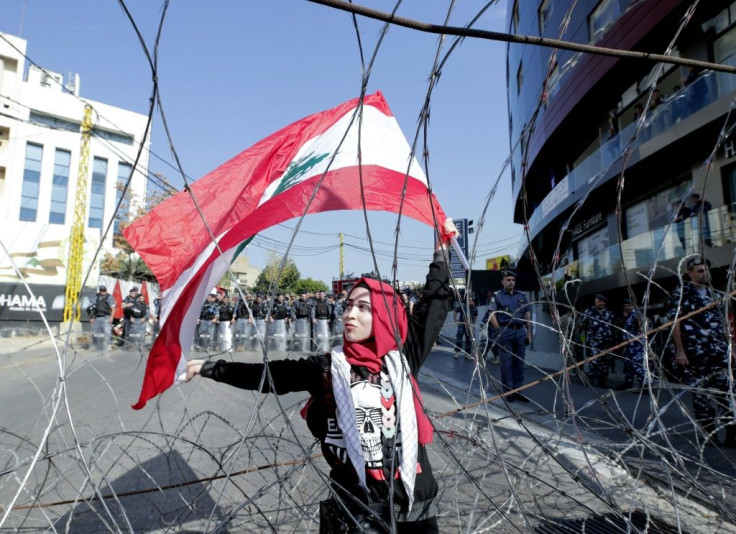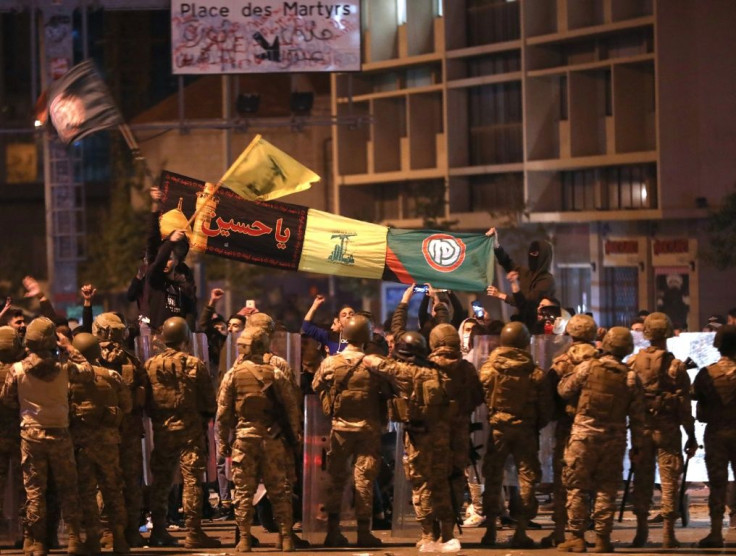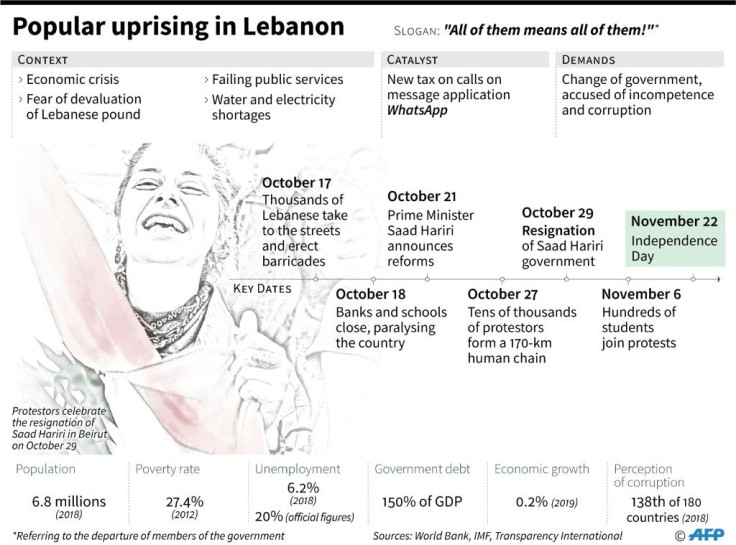Lebanon's Hariri Steps Aside To Speed Up New Govt

Lebanon's outgoing prime minister said Tuesday he will not head the next government, in a move intended to speed up the formation of a new cabinet in the protest-swept country.
Demonstrations demanding an overhaul of Lebanon's entire political system have rocked the small Mediterranean country since mid-October, forcing Saad Hariri to announce his cabinet's resignation on October 29.
The country's bitterly divided political leaders have yet to form a new cabinet, with the UN on Monday urging the process be accelerated after supporters of Lebanon's two main Shiite parties attacked protesters.
In response to the "irresponsible practices" of the political leadership, Hariri said he felt compelled to make his position known.
"I strongly adhere to the rule of 'not me, but someone else' to form a government," Hariri said.
He hoped his move would "open doors to a solution" and swiftly lead to a presidential "call for binding parliamentary consultations to appoint a new premier".
Hariri's outgoing cabinet remains in a caretaker capacity as leaders haggle over the next government make-up.
President Michel Aoun, whose powers include initiating parliamentary consultations to appoint a cabinet, has yet to schedule such talks.
The Free Patriotic Movement (FPM), a Christian party founded by Aoun, has accused Hariri of delaying matters by refusing to accept any other candidate for the premiership, a charge Lebanon's leading Sunni Muslim politician denies.
Forming a government can take months in Lebanon, with sectarian communities and party leaders seeking to protect their own interests.

This time, the task is complicated further by protesters' demands for a government of technocrats.
Aoun has said he supports forming a government of technocrats and representatives of the popular movement, but also including members of established parties.
However, protesters want a government composed entirely of independent experts, which analysts say is a tall order.
Shiite movement "Hezbollah will veto any cabinet that does not include members of the party," said Hilal Khashan, political science professor at the American University of Beirut.
"The next government will have to be a hybrid government that will include mostly technocrats but it will also include a number of politicians."
Supporters of established parties have rallied to counter the anti-government demonstrations.

Late Sunday, Hezbollah and Amal supporters attacked protesters blocking a key Beirut flyover, in the most serious such confrontation since the protests began.
The following night, they again taunted anti-government activists in central Beirut and the southern port city of Tyre.
On Tuesday, Hezbollah and Amal supporters attacked a protest camp in the eastern town of Baalbek, a stronghold of both movements.
On a road leading to the presidential palace, FPM supporters scuffled with demonstrators pressing for parliamentary consultations.
Rights group Amnesty International urged the authorities to protect protesters from supporters of established political parties.
"The past two days' seemingly coordinated attacks could well signal a dangerous escalation," said Lynn Maalouf, Amnesty's Middle East research head.
In a separate statement, UN Human Rights experts said "security forces have reportedly failed to intervene to protect peaceful protesters or arrest perpetrators" who attack them.
In the wake of twin political and economic crises, the United States, Britain, France, UN, World Bank and credit rating agencies have all urged officials to speed up the formation of a new cabinet.
The US on Tuesday said it was not taking a position on "individual personalities" who could lead the next government.
But David Schenker, the top State Department official for the Middle East, questioned whether ordinary Lebanese would accept "a government that looks very much like the last government that they protested against."
"I think the Lebanese people have shown that they are fed up and they want a new kind of government," he told reporters.
Since September, debt-saddled Lebanon has had a liquidity crisis, with banks rationing the supply of dollars.
As a result, the dollar exchange rate on the parallel market has topped 2,000 Lebanese pounds -- a spike from the pegged rate of 1,507.
"We are in the midst of an economic free fall," said Maha Yahya, the director of Carnegie Middle East.
Suppliers and importers say they have had to buy dollars on the unofficial market because banks are not obliging.
The caretaker health minister urged the central bank Tuesday to release dollars for the import of medical equipment.
"The sector is under serious threat," said Jamal Jabak, who is close to Hezbollah.
© Copyright AFP 2024. All rights reserved.





















